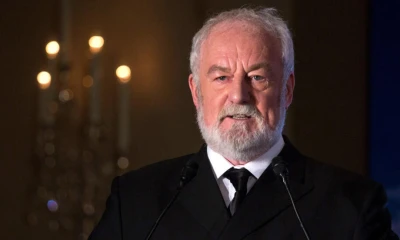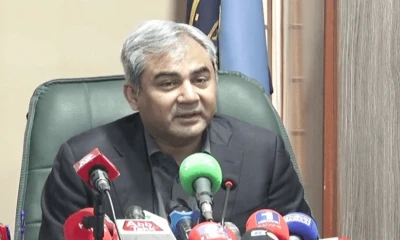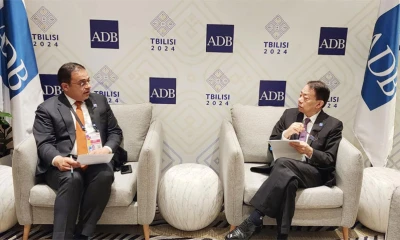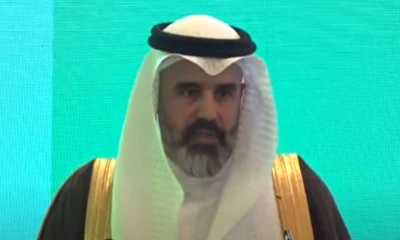-


Army Chief Asim Munir Important Speech In Passing Out Parade | Breaking News | GNN
-


Army Chief attends Passing Out Parade | Breaking News | GNN
-


Latest News Over Chaudhry Pervaiz Elahi From Court | Breaking News | GNN
-


Give farmers wheat to Iranians and take petrol and gas | Taimur Rahman Big Statement | GNN
Business
Nayyar Bukhari demands NAB investigation into wheat import scandal
The PPP senior leader says the import of wheat despite an ample domestic stock inflicted substantial financial losses on the national treasury.

Islamabad: Pakistan Peoples’ Party (PPP) senior leader Nayyar Hussain Bukhari said that the National Accountability Bureau (NAB) should investigate the wheat import scandal.
Nayyar Bukhari said that the import of wheat despite an ample domestic stock inflicted substantial financial losses on the national treasury.
He conveyed this demand through an official statement, emphasizing the necessity of transparency and accountability in handling such issues.
Regarding the Pakistan Muslim League-Nawaz's (PML-N) proposal for PPP to participate in the federal government, Bukhari clarified that while his party is dedicated to supporting the PML-N-led government in Parliament, the decision to join the cabinet rests with the PPP's Central Executive Committee (CEC).
Former interim Prime Minister Anwarul Haq Kakar, in a recent interview with a local private television channel, downplayed the significance of the wheat import controversy, characterizing it as a trivial matter.
Kakar stressed the importance of comprehending the intricacies of the wheat import process and highlighted government initiatives aimed at conserving tax revenue, facilitating private-sector wheat transactions, and generating income through import tariffs.
World
Hezbollah launches Katyusha rockets at Israeli base after east Lebanon strike
Lebanese official media says an Israeli strike on Monday wounded three people in the country's east
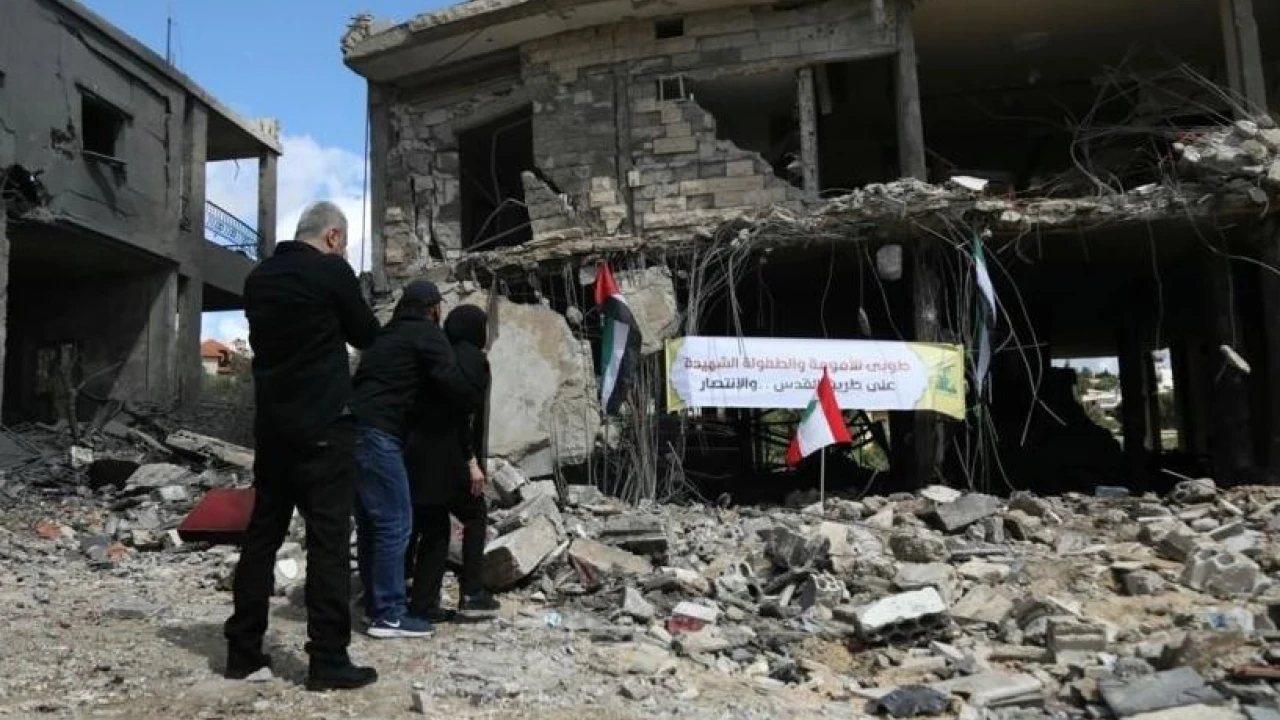
Beirut (AFP): Lebanese official media said an Israeli strike Monday wounded three people in the country's east, with Hezbollah saying it launched "dozens of Katyusha rockets" at an Israeli base in retaliation.
Israel and Lebanon's Hezbollah have exchanged regular cross-border fire since Palestinian militant group Hamas's unprecedented October 7 attack on southern Israel sparked war in the Gaza Strip.
In recent weeks Hamas-ally Hezbollah has stepped up its attacks on northern Israel, and the Israeli military has struck deeper into Lebanese territory.
"Enemy warplanes launched a strike at around 1:30 am this morning on a factory in Sifri, wounding three civilians and destroying the building," Lebanon's official National News Agency said.
Sifri is in Lebanon's eastern Bekaa Valley in the Baalbek area, a Hezbollah stronghold that Israel has repeatedly struck in recent weeks, located around 80 kilometres (50 miles) from the Israel-Lebanon frontier.
The Israeli army said its warplanes "struck a Hezbollah military structure... deep inside Lebanon," referring to the location as "Safri".
Lebanon's Iran-backed Hezbollah group said it launched "dozens of Katyusha rockets" targeting "the headquarters of the Golan Division... at Nafah base" in the Israeli-annexed Golan Heights.
The strikes by Hezbollah on Israel came "in response to the enemy's attack targeting the Bekaa region", it said.
Hezbollah later claimed a drone attack on troops in northern Israel, with the Israeli army saying "a UAV (drone) was identified crossing from Lebanon into the area of Metula".
The army also said "fighter jets struck approximately 15 (Hezbollah) military structures and terror infrastructure" in south Lebanon.
Last month, a building in Sifri was targeted in an Israeli raid, while the Israeli army said it had targeted Hezbollah sites in Lebanon's east.
The intensifying exchanges have stoked fears of all-out conflict between Israel and Hezbollah, which went to war in 2006.
In Lebanon, at least 390 people have been killed in nearly seven months of cross-border violence, mostly militants but also more than 70 civilians, according to an AFP tally.
On Sunday official media in Lebanon said an Israeli strike on a southern village killed four family members, with Hezbollah announcing retaliatory attacks.
Israel says 11 soldiers and nine civilians have been killed on its side of the border.
Tens of thousands of people have been displaced on both sides.
Technology
Paris 2024 getting ready to face unprecedented cybersecurity threat
Organised crime, activists and hostile states will be the main threats during the Olympics and the Paralympics

Paris (Reuters): Paris 2024 is getting ready to face an unprecedented challenge in terms of cybersecurity, with organisers expecting huge pressure on the Games this summer.
Organised crime, activists and hostile states will be the main threats during the July 26-August 11 Olympics and the August 28-September 8 Paralympics.
Paris 2024, which has been working hand in hand with the French National Agency for Information Security (ANSSI) and cybersecurity companies Cisco and Eviden are looking to limit the impact of cyber attacks.
“We can’t prevent all the attacks, there will not be Games without attacks but we have to limit their impacts on the Olympics,” Vincent Strubel, the director general of ANSSI, told reporters.
“There are 500 sites, competition venues and local collectives, and we’ve tested them all.”
Strubel is confident that Paris 2024, which will operate from a cybersecurity operation centre in a location that is being kept secret, will be ready.
“The Games are facing an unprecedented level of threat, but we’ve also done an unprecedented amount of preparation work so I think we’re a step ahead of the attackers,” he said.
Paris 2024 has hired “ethical hackers” to stress test their systems and is using artificial intelligence to help them ascertain potential threats. “AI helps us make the difference between a nuisance and a catastrophe,” said Franz Regul, managing director for IT at Paris 2024.
“We’re expecting the number of cybersecurity events to be multiplied by 10 compared to Tokyo [in 2021].” “In terms of cybersecurity, four years is the equivalent of a century,” Eric Greffier, head of partnerships at Cisco, explained.
In 2018, a computer virus dubbed “Olympic Destroyer” was used to attack the opening ceremony of the Pyeongchang Winter Games.
While Moscow denied any involvement, the US Justice Department in 2020 said it indicted six Russian intelligence agency hackers for a four-year-long hacking spree, which included attacks on the Pyeongchang Games.
“We would like to have one opponent but we’re looking into everything and everyone. Naming the potential attackers is not our role, it is the role of the state,” Strubel said.
Last month, French President Emmanuel Macron said he had no doubt Russia would malevolently target the Paris Olympics.
The Games will take place amid a complex global backdrop, including Russia’s war in Ukraine and Israel’s military campaign against Hamas in Gaza.
-

 Pakistan 2 days ago
Pakistan 2 days agoCM Maryam meets WHO Regional Director Dr Hanan Balkhy
-

 Health 2 days ago
Health 2 days agoPunjab to provide free medicines to 0.2m patients at their doorstep
-

 Technology 2 days ago
Technology 2 days agoElon Musk goes ‘absolutely hard core’ in another round of Tesla layoffs
-

 Regional 2 days ago
Regional 2 days agoSindh govt introduces smart card for bus fares in Karachi
-
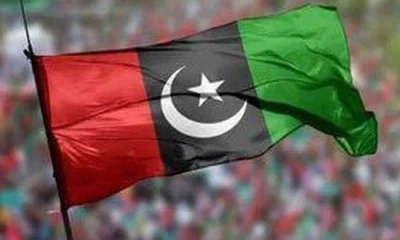
 Pakistan 2 days ago
Pakistan 2 days agoPPP nominates Kundi, Haider for KP, Punjab governorship
-

 Pakistan 21 hours ago
Pakistan 21 hours agoPunjab CM addresses closing ceremony of CM Pink Games 2024
-

 Business 2 days ago
Business 2 days agoGold price in Pakistan plummets Rs1,600 per tola
-

 Sports 2 days ago
Sports 2 days agoAzlan Shah Cup: Pakistan to play 1st match against Malaysia

